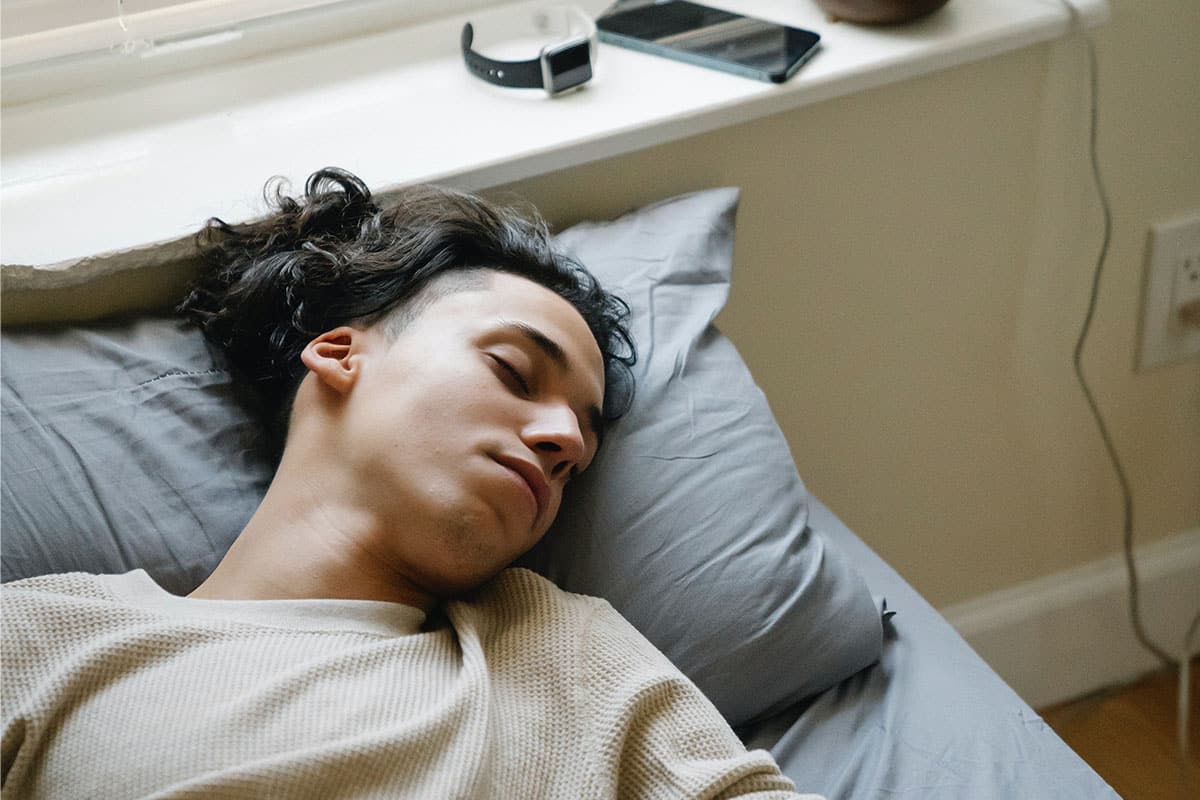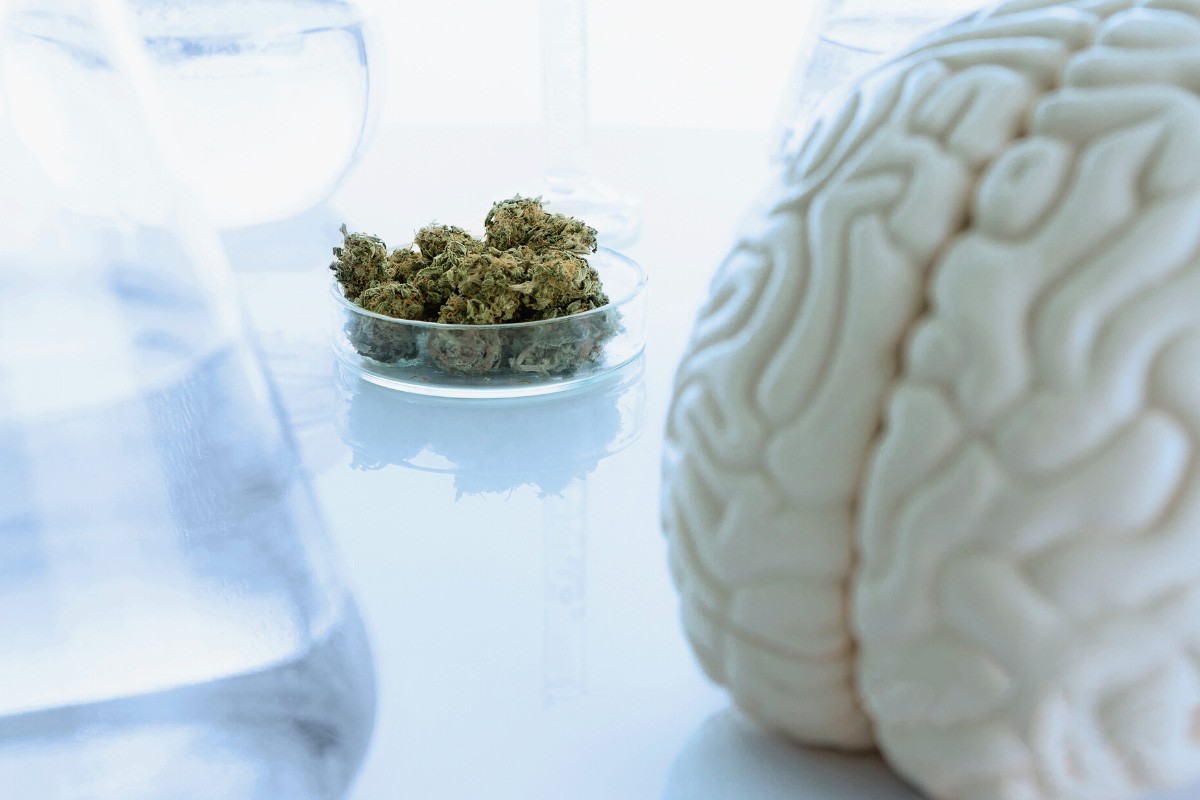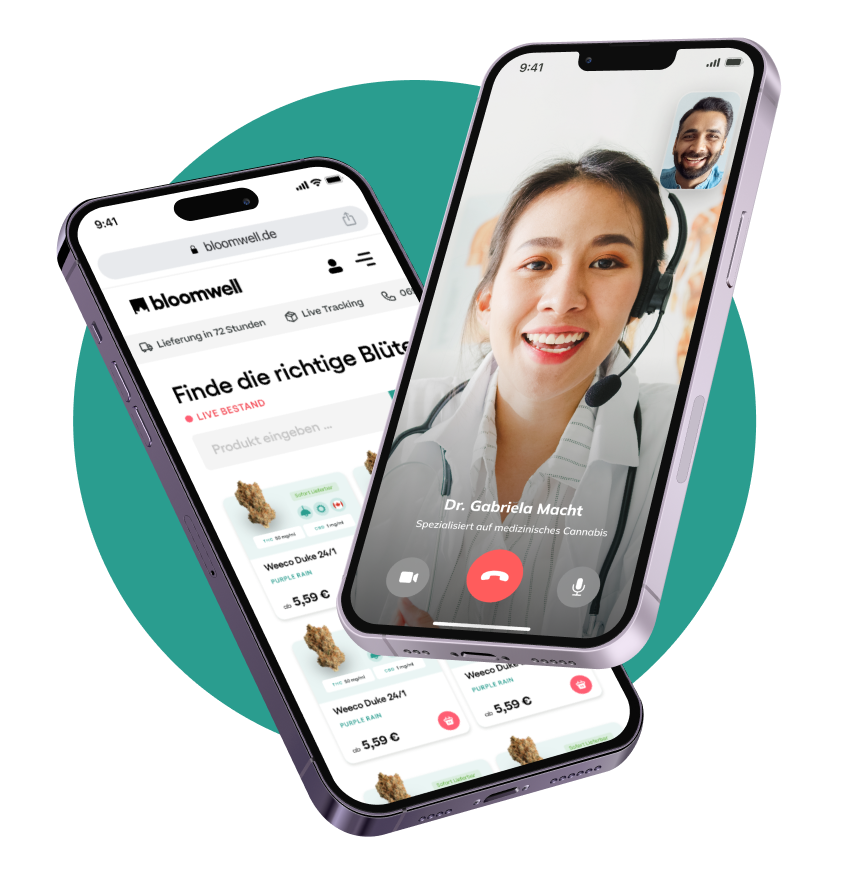Sleep disorders are a common phenomenon that can have various causes and serious consequences for physical and mental health. After all, those who cannot fall asleep or sleep through the night well – therefore feel exhausted and drained during the day – could be less able to concentrate and would be less productive overall.
Depending on the cause of the sleep disorder, different treatment options are available. Among the most common – in addition to improving sleep hygiene – are behavioral or sleep therapy and medication. However, alternative treatment methods such as acupuncture, hypnosis or the use of herbal substances are also becoming increasingly popular. Cannabis, or the active ingredient cannabidiol (CBD) contained therein, also plays an important role. CBD has a relaxing effect and can thus help to reduce feelings of stress and anxiety.
Scientific studies on sleep health – Cannabis and CBD
There are some scientific studies that have focused on the effect of cannabis or rather CBD on sleep. Part of these studies examined not only healthy individuals, but also patients with certain diseases.
Originally, the sleepiness observed as a result of CBD ingestion was a (rather undesirable or unanticipated) side effect. The scientists’ concern that the drowsiness was the expression of a psychotropic or toxic effect of CBD proved to be unfounded, and so they were able to test cannabidiol on subjects suffering from insomnia. Subjects received different doses of CBD (40, 80, or 160 mg), a conventional sleep aid (nitrazepam), or a placebo [1]. Participants receiving 160 mg of CBD reported sleeping significantly more and recalling fewer dreams than the placebo group. Epilepsy patients for whom conventional epilepsy medications did not achieve the desired effect also benefited from taking CBD [1].
In a study published in 2014 with (however only) 4 Parkinson’s disease patients, it was shown that treatment with CBD led to an improvement in sleep behavior during REM phases [2]. In a 2016 case report, researchers described the case of a 10-year-old girl with post-traumatic stress disorder (PTSD) who suffered from anxiety and sleep disturbances. In her case, treatment with CBD oil resulted in a sustained decrease in anxiety and a steady improvement in sleep quality and quantity [3]. It is possible that the evidence from this study may be relevant to other PTSD patients.
In addition, it may be useful to take a closer look at the causes of sleep disturbances. This is because many of the causes also appear to be influenced by CBD, indirectly improving sleep health. One example: many people cannot sleep at night because they are very stressed. Some (animal) studies indicate that CBD has a stress-reducing effect [4], which may also occur in humans. Anxiety is also a risk factor for poor sleep – and for that topic as well there is evidence that taking CBD can alleviate anxiety and sleep symptoms [5].
The correct dosage
An important factor for the effectiveness of CBD on sleep behavior is the correct dosage. However, this cannot be determined across the board, but depends on many factors, such as the metabolism of the person or their responsiveness to the active ingredient. The dosage form and bioavailability can also play a role.
Those who suffer from sleep disorders and hope to get help from CBD should start with a low dosage. Starting doses are usually 5-10 mg per day. Test this dose over a period of about a week but to be most informed about the effects of CBD talk to your doctor or a specialised medical expert for cannabis. If you already notice positive effects on your sleep patterns, you can maintain the dosage. However, it is equally possible that low doses of CBD may have an opposite effect and more of an awakening effect [6]. In this case, or even if you do not notice any change at all, you can increase the dose by about 5 mg and try this dosage again for a week. Continue according to this scheme until you have achieved the desired effect. High dosages above 10 mg CBD for should always be planned as a therapeutic step and dosage should be instructed by medical experts that fully understand the concept of CBD based therapy for sleep disorders.
What to pay attention to when taking cannabis as a sleep aid
People with sleep disorders usually have trouble falling asleep or staying asleep through the night. CBD can increase drowsiness, making it easier to fall asleep and sleep through the night. However, without personal experience or medical advise, it is nearly impossible to predict the onset and duration of cannabis effects on an individual basis. Therefore, if you take cannabis to improve sleep health, you should do so only in the evening and start with a low dosage. According to experts, it should be taken at least one hour before bedtime [7]. As a rule, cannabis works for about 3-4 hours, but in individual cases the effect can last much longer. In this case, you should definitely refrain from operating machines and driving vehicles until you have regained your normal level of attention and performance.
Sleep disorders usually have a cause, especially if they persist over a longer period of time. For a lasting improvement in sleep, it is therefore recommended to have the cause of the sleep disorder medically clarified in addition to possible relief with CBD or other sleep medications. In this case, talk to a doctor to determine the causes of the sleep problems and/or to identify a suitable preparation and the optimal dosage.








